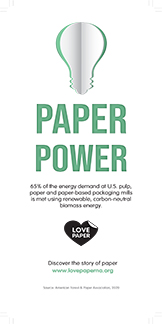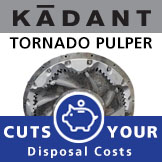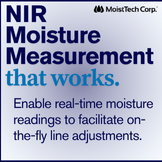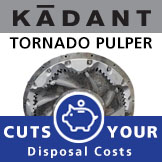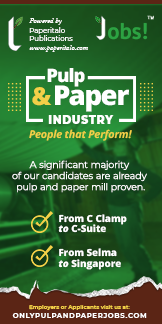With a blank sheet of paper staring at me, I sit and wonder, "what is it that I do for my employers, for my customers?" That line of thinking kindled a much bigger flame of what is the role of a person in "Sales". I think it is very nuanced and influenced much by semantics. What does sales mean?
To wit, my first "sales" job in the world of paper machine automation was titled "Area Manager". Let's start there. An area manager is like a franchisee. You are awarded exclusive rights to represent a company and their products or services in a defined region. In my case, I had the states of Ohio, Indiana, and Kentucky. Not the "best" territory in Pulp & Paper manufacturing in the US, yet still, I had 40 papermaking operations to call on - as small as they may be. I'll take it.
Mind you, this is 1994 - 30 years ago. That territory, through acquisitions and closures, has seen the number of viable operations dwindle significantly over the time period I describe. Small, inefficient mills making text and cover grades closed, usually after several name changes through different ownership. Think of places like Sorg Paper, Beckett Paper, Miami Paper, Fox River Paper, Champion Paper, Ivex Paper or any number of recycled paperboard mills. Yet, there are some real gems like Chillicothe (although a fraction of its former self) or Maysville, that still remain quite viable. Even some new greenfield operations have been built like two Pratt mills, SCA, and Sofidel in the last decade. Quantity is slowly being replaced by quality, and they are producing packaging or consumer products.
With my list of accounts in my territory, I would visit operations regularly to try to understand their pain points in production, quality, waste, or safety and come up with ways my company, and the solutions we provided, yielded a net benefit to their operations. That was usually quantified through economic benefits. What could we do to get more on-quality tons out the door at a lower cost? If you're reading this and you work in a papermaking operation, I would suggest always entertaining a sales call to enable these reps to propose ideas that create value. It's free consulting - well, it costs you an hour of your day. If you're in a commercial role reading this...make sure the time someone gives you is not wasted.
We're not the dreaded car sales person. Or insurance sales people who are there just to fight over the price paid for a commodity. Maybe there are reps like that and that's when I would stop wasting my time entertaining them unless a price war is your goal. However, when engaging in a price battle, the sales people you are engaging usually know the tactic is used to negotiate a lower price with the incumbent provider and a change is not really in the cards. At that point, the sales people are only in it to take profit away from said incumbent so our time is not wasted. I'd be happy to provide you a low-ball price as long as I'm not expected to honor it.
Outside of the normal operations looking to improve the P&L, there is the capital project. This usually drives a request for proposal (RFP.) This outlines what the customer is seeking, usually in great detail, so suppliers (whether its capital equipment, consumables, controls, process chemistry, services, warehousing, IT systems) can all bid on the job and describe why they should be the partner of choice. I've represented companies in every arena and the process all feels the same. Lately, it even feels very susceptible to some sort of AI system that pairs up people in need of something specific (think of the root word "spec") with pricing from people who can provide that something.
Yet, I am not worried about an imminent takeover of AI in the world of commercial sales. The best solutions, the right solutions, are not formulaic. AI can't read between the lines, or take in other factors not presented to it. What makes for win-win scenarios is trust, competency, innovation and longevity. There's a strategy involved that is only uncovered through conversation and small acts and observations that build trust. AI can't build trust. In fact, I think AI is going to accelerate the opposite - you can't trust what you see and hear. Is that picture real? Is this person I'm arguing with online real? Is this paper written on such and such topic verifiable? Even the various solicitations I receive over email feel like an algorithm wrote them. The quantity of those emails, when your name and email is on every press release your company makes, compounds dramatically.
The future will be an age of dwindling trust - so we will get back to the tried and true process of value propositions, reference visits, innovation trials, and good old negotiation of deals. In other words, TRUST.
Whether you call yourself a sales person, business developer, corporate account manager; what we do is bring value through all the resources at our disposal - like an entrepreneur. And if you don't win on the first try, you try again, building upon what you learned last time. Eventually we will win over hearts and minds as long as we aren't blowing smoke all the time or failing to deliver on promises. If you find yourself on the losing side too often, that's when you have to consider who you are working for and if they are willing to innovate to get you back in the win column with your prospective customer. The world becomes better overall when innovation drives success.
You can't ask for trust, it must be earned.
Steve Sena (stevesena@me.com) is a Cincinnati native. He obtained degrees in Paper Science & Engineering from Miami University in Oxford, OH and an MBA concentrating in Economics from Xavier University. He's worked for a broad array of leading producers, suppliers, and converters of pulp and paper grades.





